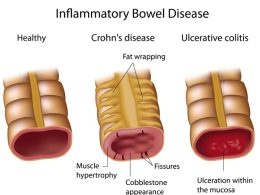Alzheimer’s disease is a devastating and irreversible form of dementia that affects millions of people worldwide. Knowing the different Alzheimer’s symptoms stages can help individuals and their families prepare for the progressive decline in cognitive abilities that this condition can cause. This article will delve into the different stages of Alzheimer’s disease and what to expect as the condition progresses. Keep reading to learn more.
The Early Stage of Alzheimer’s Disease
The early stage of Alzheimer’s disease is characterized by forgetfulness and mild cognitive impairment. As the disease progresses, affected individuals may experience difficulty with basic tasks such as dressing or bathing, and eventually may lose the ability to speak, walk, and care for themselves. The cause of Alzheimer’s disease is not yet known, but it is thought to involve a combination of genetic and environmental factors. There is currently no cure for the disease, but treatments are available that can help to improve symptoms. In the early stage of Alzheimer’s disease, affected individuals may notice that they are forgetting things more often than usual. This may include forgetting the names of people they know, forgetting where they put items, or forgetting important dates or events. People with Alzheimer’s disease may also experience changes in their mental abilities. They may find it difficult to concentrate or to make decisions and may start to lose their ability to understand complex concepts or remember things that happened recently.
The Moderate (Middle) Stage of Alzheimer’s Disease
The moderate (middle) stage of Alzheimer’s is typically the longest and most difficult phase of the disease. During this time, individuals will experience a decline in cognitive abilities that severely impacts their daily living skills. Memory loss and confusion become increasingly worse, causing problems with activities such as shopping, cooking, managing finances, and planning for the future. People may have difficulty recognizing familiar faces or places and expressing themselves using language. They often forget recent conversations or events even if they can remember past experiences from years ago. Behavioral changes are common during the moderate stage, including increased agitation, aggression towards family members or other caregivers, restlessness at night (sundowning), wandering off to unknown places without any memory of how they got there when found again; depression, as well as delusions and hallucinations, can also occur during this period of time.
The Severe Stage of Alzheimer’s Disease

The severe stage of Alzheimer’s disease is characterized by profound memory loss, impaired reasoning, and a decrease in the ability to perform basic activities of daily living. People in this stage may become unable to recognize even close family members or friends, communicate meaningfully, or take care of their own basic needs. They may wander away from home or become incontinent, and they may have difficulty with activities such as dressing or eating. The severe stages can also cause changes in behavior, such as increased agitation, aggression, and depression. People in this stage may become forgetful, disoriented, and confused, and they may become easily frustrated or agitated. They may also have difficulty sleeping or have hallucinations. People in this stage also may no longer be able to recognize familiar places or objects, and they may be unable to remember how to do simple tasks such as brushing their teeth or getting dressed.
Overall, understanding the different stages of Alzheimer’s disease is crucial for recognizing signs and symptoms in order to provide the best care for those living with the condition. Knowing the stages of progression allows caregivers to gain insight into the effects of the disease, as well as plan for the future and provide a supportive environment for those affected.









